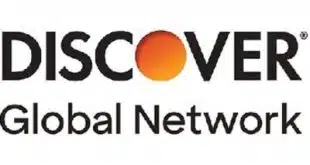A relatively novel method for private companies to go public gained momentum in the payments industry last month with the announcement that London-based processor Paysafe Group Holdings Ltd. will be acquired by a group put together by Las Vegas-based Foley Trasimene Acquisition Corp. in a deal valued at approximately $9 billion.
The transaction, which is expected to close by June, will result in Paysafe’s listing on the New York Stock Exchange under the symbol PSFE. Las Vegas-based Foley Trasimene, a special purpose acquisition corporation, or SPAC, headed by veteran businessman William Foley, will own approximately 4% of the resulting company. The remainder of the equity will be held by shareholders including Blackstone Group and private investors.
The Paysafe deal represented the third major SPAC transaction in payments announced in 2020, with Atlanta-based Paya Inc. having clinched a deal in August with FinTech Acquisition Corp. III. Software provider Billtrust announced its SPAC in October. A SPAC is a company formed for the purpose of acquiring or merging with another business and taking it public.
“We looked at hundreds of transactions and narrowed our focus to a few companies. That led us to Paysafe, an attractive high-growth company with scale,” Foley said last month during a conference call with investors. He underscored the opportunity by calling Paysafe a “scarce” buy with high growth prospects across markets in digital wallets, online gaming, and traditional payment processing. Foley was among the founders of Fidelity National Financial, the one-time parent of processor FIS Inc.
“We have plenty of areas for growth,” added Philip McHugh, Paysafe’s chief executive, during the investor call.
Paysafe’s business includes traditional merchant acquiring, where it serves more than 250,000 merchants, as well as stakes in digital wallets, where it claims 3.8 million active users. But it sees especially fast growth in the U.S. online-gaming market, where it projects volume growing to $24 billion by 2025 from $3.4 billion last year.
Paysafe has been processing gaming transactions since 1999, with an entry in the U.S. market in 2013. “I-gaming is in our blood,” McHugh said during the call.
Across all its markets, the company estimates it will process $89 billion in volume in its fiscal 2020, down from $98 billion in 2019. But it expects to rebound to $103 billion in 2021. Traditional processing accounts for 72% of its business, with digital wallets taking a 24% share and so-called e-cash accounting for the remainder.
The Paysafe SPAC transaction is at least the fifth that has taken place in the payments business in the past three years, estimates Peter Michaud, director of consulting for The Strawhecker Group, an Omaha-based consulting and research firm. The attraction for firms is “speed to market,” he says, as executives can bypass the regulatory workload imposed on firms looking to go public via a traditional initial public offering.
“It eliminates a lot of legwork,” Michaud says, allowing firms to take advantage of a market where valuations are rising. “People are trying to get into the market as quickly as possible,” he adds.




